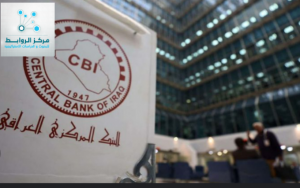By : Shatha Kalel
The Central Bank of Iraq (CBI) recently issued new directives regarding the updating of employees’ and retirees’ data, as well as the regulation of the use of bank cards abroad. These measures aim to enhance transparency, ensure compliance with international banking standards, stabilize the national currency, and support Iraq’s economic development.
1. Background on the Central Bank of Iraq
The Central Bank of Iraq was established under Law No. (43) of 1947 and officially commenced operations that same year, taking over from the Baghdad branch of the Jordan National Bank. Since its founding, the CBI has played a central role in managing monetary policy, regulating the banking sector, and maintaining the stability of the Iraqi dinar.
Following the events of 2003, the Bank has undergone significant reforms, aligning itself with international financial standards, enhancing anti-money laundering frameworks, and rebuilding its foreign currency reserves.
2. Summary of the New Instructions
Updating Personal Data for Beneficiaries
All financial institutions are required to update the personal information of employees and retirees, including civil identification documents and proof of residence, while fully complying with Know Your Customer (KYC) procedures.
Regulating the Use of Bank Cards Abroad
The use of bank cards outside Iraq is restricted to travel and medical treatment purposes only, with a monthly spending limit of $2,000 per individual. Transactions must be linked to authorized Merchant Category Codes (MCCs) to ensure funds are used appropriately.
Strict Monitoring of Banking Transactions
Transactions made via ATMs or POS devices must be associated with permitted MCCs, and the use of cards for unauthorized purposes is strictly prohibited.
3. Expected Economic Impact
Enhancing Currency Stability
By limiting external dollar use to genuine needs, the CBI expects to reduce the demand for U.S. dollars in the parallel market, thereby stabilizing the Iraqi dinar.
Reducing Money Laundering and Capital Flight
The regulations place strong barriers against illicit activities involving bank cards, which will likely curb the illegal outflow of funds from Iraq.
Boosting Confidence in the Banking Sector
Full compliance with KYC requirements and new monitoring rules will improve transparency, strengthening public trust in Iraq’s financial institutions.
Improving the Balance of Payments
Controlling external spending is expected to gradually strengthen Iraq’s external accounts and protect its foreign currency reserves.
Stimulating Domestic Economic Growth
As speculative activities diminish and local liquidity remains within the country, there will likely be greater investment in productive sectors, fostering sustainable economic growth.
4. Potential Challenges
Despite the significant benefits, the new regulations may face resistance from groups that previously benefited from looser controls. Public awareness campaigns will be crucial to ensure smooth and effective implementation.
5. The Central Bank’s Vision for the Future
Building on decades of experience, the Central Bank of Iraq continues to pursue major reforms aimed at making the Iraqi banking system more transparent, resilient, and efficient. These latest instructions are part of a broader strategy to strengthen financial and monetary stability, ensuring Iraq’s economy is prepared to meet future challenges with a modern, globally integrated banking framework.
Conclusion
The Central Bank of Iraq’s latest directives represent a strategic move toward a disciplined and transparent financial environment, laying the foundation for sustained economic growth and enhanced national monetary stability.a
Economic Studies Unit / North America Office
Al-Rabetah Center for Strategic Research and Studies

